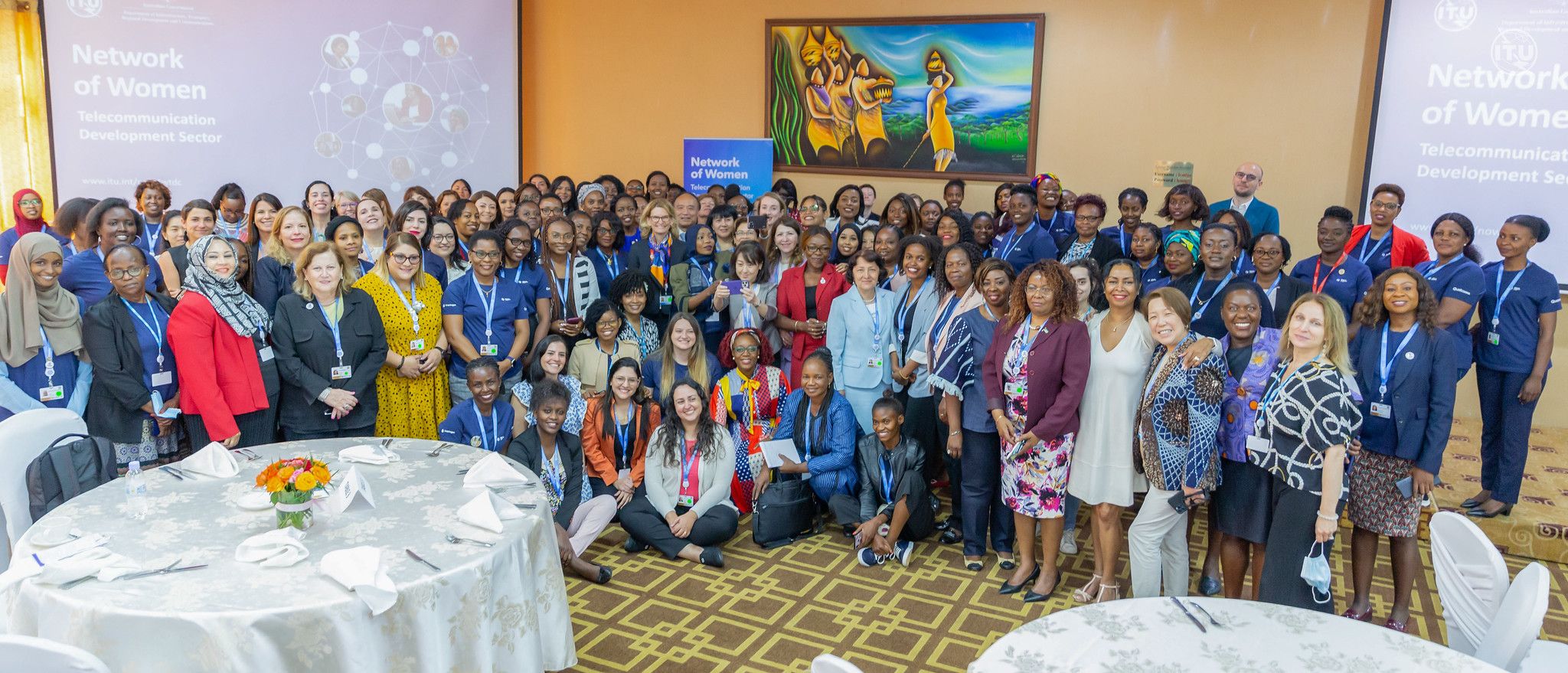
Women’s network puts gender equality at centre of development priorities
By ITU News
The ITU Development Sector (ITU-D) Network of Women (NoW) has put gender concerns at the forefront of global initiatives to connect the unconnected. The recent World Telecommunication Development Conference (WTDC), held in Kigali, Rwanda, between 6 and 16 June, included key discussions organized by the NoW in ITU-D.
In their conversation at a Working Luncheon supported by US-based wireless technology group Qualcomm on 9 June, conference participants recommended ways to strengthen women’s presence in the digital development sector.
The NoW in ITU-D is focused on boosting women’s leadership and participation in high-level development policy-making processes in the sector, including ITU conferences.
Discussants included Elizabeth Migwalla, Qualcomm’s Vice President for International Government Affairs, Director of ITU’s Telecommunication Development Bureau, Doreen Bogdan-Martin; Cristiana Flutur, Head of International Affairs at Romanian regulator ANCOM; and Rwanda’s Minister of Information and Communications Technology and Innovation, Hon. Paula Ingabire, who also chaired WTDC.
Stepping up gender mainstreaming
Follow-up discussions at a Women’s Breakfast on 15 June, supported by Australia, zeroed in on enhancements to strengthen WTDC Resolution 55 – a key conference commitment to mainstream gender in ITU’s development activities.
The breakfast also served to collate broader ideas on promoting gender equality in the rapidly evolving – but largely male-dominated – field of telecom and digital technologies.
In her address, Lisa Gittos, First Secretary, Australian Permanent Mission to the United Nations in Geneva, urged delegates to keep up the momentum on women’s empowerment ahead of the ITU Plenipotentiary Conference, to be held in Bucharest, Romania from 26 September to 14 October.
Dr Kim Mallalieu, Deputy Chair of the Telecommunications Authority of Trinidad and Tobago and Senior Lecturer, Department of Electrical and Computer Engineering, The University of the West Indies, called on women to step up in their quest to be heard, and to continue to reference data in measuring progress.
Key findings of the GSMA Mobile Gender Gap Report shared at the breakfast underlined the slow progress – in some cases reversal – in the equal digital inclusion of women. Max Cuvellier, Head of Mobile for Development (M4D) at mobile telecom industry association GSMA, stressed the need for coordinated efforts to ensure that women are not left behind in an increasingly digital world.
Walk2Connect to bridge the gender digital divide
On 12 June, conference delegates and local residents in Kigali alike joined Walk2Connect, a seven-kilometre walkathon organized by ITU in collaboration with the Ministry of Information and Communications Technology and Innovation, the Rwanda Utilities Regulatory Authority, and the City of Kigali.
The walkathon aimed to raise awareness on the pressing need to bridge the gender digital divide and promote equal participation of women in the global digital agenda.
Mentorship
Mentorship opportunities offered through the Network of Women in ITU-D support and encourage mentees to step up to senior leadership roles at key ITU conferences and other meetings of ITU’s governing bodies.
During the recent WTDC cycle, the mentorship programme brought together 318 delegates, both new and experienced, from 100 different countries, who were then paired off as mentor and mentees to share their knowledge and experience.
NoW objectives
ITU-D’s Network of Women was created in 2021 with the following aims:
- Build, in the medium and long term, a community where female delegates support each other, expand their network, advocate and share experience and knowledge.
- Promote the active participation of women in the activities of ITU and the sector in general.
- Give visibility to women and empower them for larger responsibilities in their respective delegations, at WTDC and in future similar platforms.
- Encourage experienced female delegates to mentor ICT professionals in order to create a stronger base for women in the digital space.
Learn more about the Network of Women in ITU-D programme.
Image credit: D. Woldu/ITU
